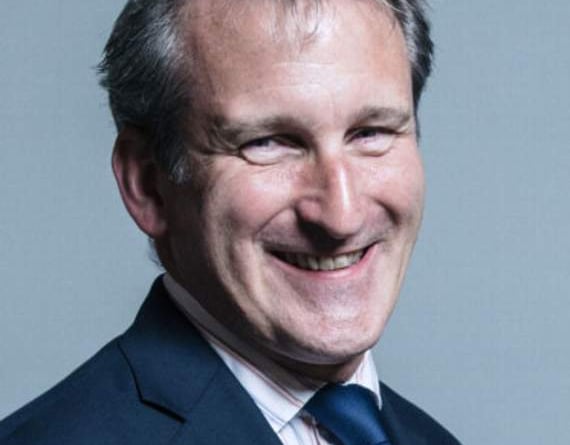With more than 22 million people in the UK having had their first vaccine dose – a third of all adults – we are starting to see real evidence of how the vaccination roll-out is driving down deaths and the number of people in hospital.
Our route out of this pandemic is increasingly more secure and sustainable, both nationally and here, with almost 12,000 people under 65 in East Hampshire having had one dose of the vaccine.
And at the recent G7 meeting, the prime minister led the call for a united global approach to tackle the virus, and there was agreement to work together and support the World Health Organisation (WHO) in leading and coordinating that effort.
COVAX – the Covid-19 Vaccines Global Access Facility – is the WHO initiative that aims to distribute vaccines to one billion people in 190 countries by the end of 2021.
It has raised $6 billion of funding, with $734 million from the UK and a US pledge for $4 billion after President Biden withdrew his predecessor’s plans to leave the WHO.
And with the approval of the Oxford University/AstraZeneca vaccine, the programme has begun its roll-out, with Ghana receiving a shipment of 600,000 doses on February 24.
All participating countries are expected to have enough doses for high-risk groups by the summer; the UK has pledged to donate most of its surplus vaccine supply to poorer countries.
But the challenge is staggering. Gavi, the Vaccine Alliance, plans a first allocation of more than 238 million doses to 142 countries by the end of May.
International commitment and co-operation is key to this effort, and will see a significant boost in vaccine development and deployment, working with industry to upscale manufacturing.
Enabling access to affordable therapeutics and diagnostics is also important, as is data and information sharing.
One of the great success stories is the UK’s expertise in genomic sequencing and how it is identifying new variants.
With a reported 4,000 variants worldwide, it is vital this work continues at pace and informs how vaccines can be adapted in future.
At the G7, the prime minister also called for an international commitment to cut development time for coronavirus vaccines from 300 days to 100 days, as recommended by the Coalition for Epidemic Preparedness Innovations.
We have seen the global devastation of Covid-19 and a much greater preparedness and vigilance is needed for the next pandemic; a threat we know is inevitable.
One of the most significant UK trials under way is to understand if the Pfizer/BioNTECH and Oxford Universiry/AstraZeneca vaccines can be combined.
This won’t impact the current vaccination programme, but could influence the longer-term development and roll-out of vaccines globally.
Early evidence and data on the vaccines is looking very positive, as has the 12-week dosing regime, but it’s too early to say how long vaccine protection will last.
It is perhaps significant the G7 commitment goes beyond the immediate challenges of Covid-19, and pledges to put climate change and biodiversity loss at the heart of global ambitions and recovery plans.
The pandemic undoubtedly shone a spotlight on our enduring relationship with nature, and the perils we can face.
Science, and a truly international effort, enabled us to respond to the pandemic in a way few thought possible a year ago, and that ability remains one of our greatest assets going forward.
The collective response has shown extraordinary things can be achieved if the collective will and ambition is there.
How we tackle the climate emergency has never been so important and all eyes will be on the outputs of the UK-hosted COP26 in November.




